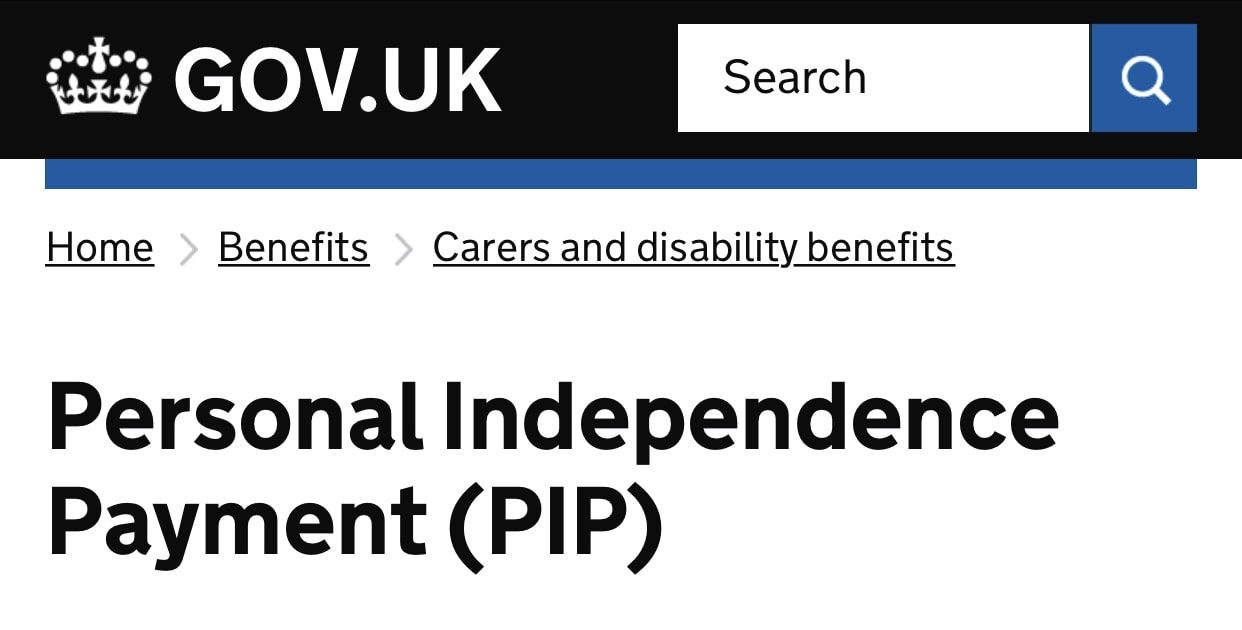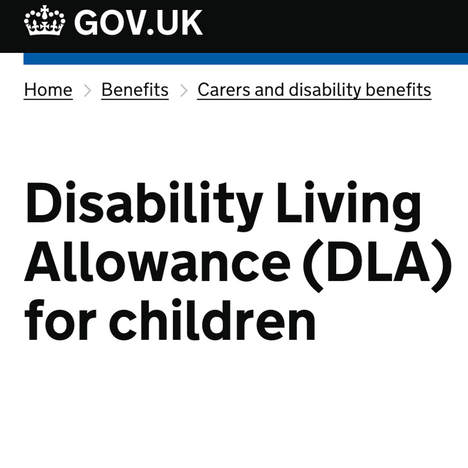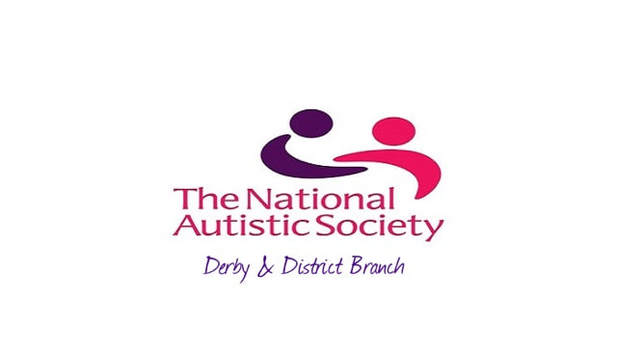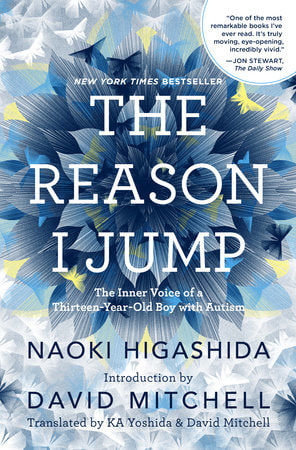|
I thought I would continue from last weeks post regarding Disability Living Allowance for children or DLA and just explain what happens when your child reaches the age of 16. It's ok, not to scary but it does involve re applying for PIP as DLA is not automatically transferred over. This can cause a bit of stress to people leaving them feeling very uncertain about what happens in the future for their young person.
PIP is a benefit for people with disabilities and is available to that person whether in work or education. It is not means tested and it can be awarded to those between the ages of 16 and 64 even if they are in receipt of other benefits so it doesn't matter how much savings you have it is there to help with care and and to get around. The application process starts with a brief phone call in which you talk to someone about basic details and if the person with the disability requires an appointee. This person will handle any finances and tasks that the person with the disability is unable to do. After that a paper form will be sent out which needs to be completed and then if necessary there may be a request to attend a face to face assessment. The decision will be made after all the information has been collected and although there have been delays in applications the DWP do intend letting you know their decision within three months. It is very similar to DLA when applying, there is a care component and a mobility so there are two different payments as with DLA. The form requests information regarding how much help is required with medication, feeding and drinking, washing, dressing, toileting, going out, communication, interaction with people, travel and managing finances. I thought it was a much easier form to film in compared to the DLA. It does take into consideration a wide range of disabilities including the difficulties people have on the autism spectrum. There is a really good fact sheet available on the NAS website with lots of information about PIP, an easy ready guide which the government has produced, and details how to claim for it too. Just follow the link here: www.autism.org.uk/pip It can seem like a minefield sometimes and I know this from experience. Forms are not my favourite thing neither is talking on the phone sometimes but I can honestly say these people are there to help. There are some people who haven't had great experience with this process but all I can suggest is getting as much help and advice as possible. Talk to other parents, find a support group or contact your local authority as there are people who can help. Please don't worry and try to cope on your own. If you do struggle, contact your local NAS branch (details available at www.autism.org.uk). If you are in the Derby area contact the Derby Branch through Facebook or by email at derbyanddistrict@nas.org.uk I hope this helps, thank you for reading and I will be back for Pass the Remote tomorrow, until then take care.
0 Comments
I know there may be many people out there who are aware of DLA but I thought I would just write a small piece about it for those who have not heard about it. It may be that you have just received a diagnosis and are at the stage where you want to know 'what to do next'.
Disability Living Allowance gives financial help to those who need extra care or help with mobility. You do not need a diagnosis of Autism to be considered for this help nor is it means tested, it focuses on how much care your child needs and whether they are able to get around easily. There are two parts to a claim, a care component and mobility. You may claim for either or both. I would suggest putting a claim in for both as a lot of behaviour in relation to Autism such as lack of road safety, sensory issues and anxiety can be factors for a consideration of low rate mobility. The care component looks at a need for the amount of attention and supervision needed over a 24 hour period. Don't be too put off by the form as it is quite lengthly and it does ask you to record tasks associated with eating, sleeping drinking, washing etc. This can seem like your writing a life story, it may seem very negative and depressing so I would recommend filling the form in stages, little at a time and take a break. There is help available if you are finding it difficult to fill in the form. The weekly rates for the care component are: lowest: £22 middle £55.65 highest £83.10 and for mobility lower: £22 higher £58 DLA is usually paid every 4 weeks into a bank account of your choice, so it could be worth applying for to give you extra financial help if needed. If you would like more information you can go to the main government website at: www.gov.uk/disability-living-allowance-children This is for new claims regarding children up to 16 years of age. For new claims over the age of 16 you would apply for PIP which is Personal Independent Payment but I will cover that in a future post. For Autism specific information about DLA go to the National Autistic Society website at: www.autism.org.uk/dla For those who are in the Derby area and would like to know more about DLA for children the NAS Derby and District Branch have a speaker coming to talk about this very subject. Jane Owen-Pam is a Welfare Rights Advisor and is coming along to talk to the branch. It will take place at The Farmhouse, 60 Ashbourne Road, Derby. DE22 4LY on Tuesday 10th October 7pm - 9pm. To book a place please send an email to: derbyanddistrict@nas.org.uk I hope that helps a little, please do try and claim as you may be entitled. In the possibility you get your claim refused you can appeal to the decision. There is support regarding this available too and I would advise to keep going, don't give up! Thanks for reading today, join me again tomorrow for 'Pass the Remote'. Take care for now......... Well how about your local branch of the National Autistic Society? There are many dotted all around the UK and they are organised in different ways depending on the volunteers who run them. Some concentrate on fundraising, some are very proactive with running groups and activities and others concentrate on supporting families with support groups and advice.
At the Derby and District Branch we organise many support groups in the area which are open to anyone wanting to know more about Autism. This maybe because you are a parent with a child who is diagnosed with Autism, someone who is on the spectrum yourself, you may be a teacher or teaching assistant or someone who is studying at university and collating research for your work, support works in all different ways. We, as a committee are very small in numbers but have experience of Autism. Some of us are parents ourselves with children or young adults on the spectrum or work in this field too. Our support groups are friendly, relaxed with no pressure to say anything if you don't want to, you can simply just come along, have a brew and a biscuit and just listen to others. Personally for me I don't think there is anything as good as mixing with other parents, it's where you get great first hand advice because these are real people living and breathing the Autism world. We've all coped, not coped, had success, made mistakes and some us have still got lots and lots to learn. You get to make new friends too which has been great for me as a single parent, it's been therapy at some points in life. We work on the aspect of giving people a place to chat and signpost those to vital information they may need, if we don't have the answers for you straightaway we will find help for you so bear with us we will find a solution somewhere for you. As most of our groups are based in schools we are now back in full flow after the summer holidays and have an up to date list of new groups with some interesting speakers coming along to talk to you. If you would like to book a place on one of our talks just send an email to derbyanddistrict@nas.org.uk otherwise just come along. For more information on our branch or if you would like to join us as a volunteer we do have a Facebook page: www.facebook.com/NASDerbyBranch/ Here is a list of our meetings up until the end of the year drive.google.com/file/d/0ByA4tntibHH7c20tNGtobDRyVnM/view and if you would like to find a branch near you, you can search for one on the National Autistic Society website at: www.autism.org.uk I know sometimes for some it is hard to reach out for help and support. Some people find it hard to do and try so hard to cope until things become so desperate you can't cope anymore. We know how that feels and have all been there at some point. I hear a lot of people say 'I'm so glad we got in touch' or I'm glad we went to hear that person talk' or pleased they attended a seminar. There is so much information and useful too so don't feel nervous about coming forward. Help is available in so many ways, reach out and allow yourself to take it, WE ARE HERE FOR EACH OTHER. I hope that helps a little and maybe I'll see you around at one of our groups. Thank you so much for reading, I will be back for my TV chat tomorrow with 'Pass the Remote' so take care until then.
There are so many great books to read to educate ourselves about Autism but this one is a definite 'must read'. Like me, I'm sure you are either starting to read everything or have loaded up on so much information on Autism your mind is about to burst. Whether you are a parent, carer, educator or trying to understand your own Autism it's a constant learning curve. We read articles by professionals, psychologists, researchers and every scientist going and although interesting it never beats the chance to actually listen to someone who is on the Autism Spectrum themselves.
This book was written by Naoki Higashida who was 13 years old at the time of writing his memoir. He is no verbal and he explains in the book how he came to manage the ability to get his thoughts over and transfer them into such a informative piece of literature. The book was then translated into English by David Mitchell and his wife in the belief that this book would be of help to a wider audience who felt the need to understand Autism more. David Mitchell starts the book with a lovely introduction and as a parent of someone with Autism I felt personally that he wrote that from the heart, it was so easy to relate to his feelings especially with him too having a son with Autism. You will always find passion amongst a lot of parents, we have a desire to share information and help each other as it can be tough trying to understand everything. I'm so glad he decided to help bring this book to everyone's attention, it certainly opened my eyes and helped me understand. The book takes on a question and answer format which makes it so easy to read. Naoki answers 58 questions that we all really want to know the answers to but either a bit shy of asking anyone or can't actually get the answers from our own people close to us on the spectrum. Questions such as: Why do people with Autism speak so loudly? Why don't you make eye contact when talking to someone? Why do you ignore us when we talk to you? Why are you so picky about what you eat? Why can you never stay still? and yes, he does explain the reason why he jumps...... So many more questions and very maturely answered some with a lot of humour and I think this books does prove that some people with autism are capable of using imagination, humour and empathy, it is also clear how badly they need our compassion, patience and understanding. There is also a short story at the end of these questions as well as a heartfelt 'afterword' by the author. So plenty of content to read. I know some people struggle with reading and don't have the time to sit down with a book so it is also available as an audio book too. I can't recommend this book enough. It is one of the best I have read and if you haven't already, order a copy now. I will include a link (affiliated) at the end of this post to Amazon. Thanks for reading today and if you have read this book let me know what you thought. I will be back tomorrow for a bit of TV chat with 'Pass the Remote' so join me then. Take care for now. I planned to write about the subject of noise and autism after hearing a story about a mum who had received a letter from a neighbour complaining about the noise her son was making. It seems to be from someone who may not have a lot of knowledge regarding autism and has little understanding of why her son would behave in this way. This little boy of three has non verbal autism and uses high pitch screeches and sounds to express how he feels so yes it may come over as loud and annoying but that is the way he communicates.
I often think about my neighbours a lot and what they may think. My son started off non verbal at 3 or 4 years old and received many speech therapy sessions, now he is more verbal than anyone else I think. He also displays echolalia which means he repeats a lot of scenes and lines from movies and tv programmes so sometimes he can be very loud. I do try to put myself in other peoples situations and think how I would feel if my son didn't have autism and how would this the of noise effect me. I'm sure it's frustrating, especially of you want to sit in the garden and get some peace and quiet but I think with people living so close to each other in some areas that it is not always possible to get completely away from the hustle, bustle and noise of each other. If it's not someone with autism it's music playing, lawnmowers, DIY or something, that's just life going on around us. As I write this it's quite ironic that I'm not coping too well with the noise of autism today. Most of the time I let it go above my head and filter it out, after all I've had a lot of practice. Today though it seems constant, loud and I feel as I'm constantly telling him to be quiet which I feel awful about as we spent so long helping and encouraging him to speak. I also feel guilty about moaning about something so trivial. It's just one of those days, those that know about autism will know that we have up and down days. I know we will go out for a walk he can let it all out in the open air and work some of his energy off. I'll get 'lightsabered' and everything will be back to normal, well our kind of normal. Sometimes as a parent you can't see it until you stop and think, see things from an autism mind. At first you want to shout and scream too, have your own parent meltdown, but that just makes things worse doesn't it? We have to be the calm ones, the chill out zoners, hard though and it doesn't always happen that way. I feel for this lady and her son, it's not easy and it is hurtful with the way in which the letter was written. For us families, we all live with autism and what brings with it 24 hours a day. Most people who don't have autism in their lives can escape, you can get away so it all comes down to awareness and taking the time to understand what other people may have to go through. She isn't neglecting her son, she's just letting him be him in his way and his world. Maybe the neighbours should all get together and just talk about it, maybe they just don't know what is involved living day to day with autism. I know its made a difference just amongst our family by discussing my sons autism. You ask all of my family and they have learnt a lot and still learning. there's one thing about living with autism, there's never a dull moment. So I'm going to pick myself up out of little mood I'm having which may be due to coming to the end of the six week school holidays. Yes give our selves a pat on the back, we've nearly made, some already have across the country. I'm going to give my son a big squeeze and tell him although he's noisy I love him to bits and I might join in with a high pitch sing long to Thomas and friends song. If you can't beat em' join em'!! Thanks for reading and for those who didn't see the story regarding this family here is the BBC News link: www.bbc.co.uk/news/uk-england-gloucestershire-41053794 Take care for now..... |
Everything AutismEvery Saturday will be about Autism, family and life. Archives
May 2020
Categories
All
|





 RSS Feed
RSS Feed
